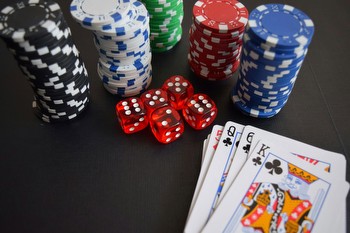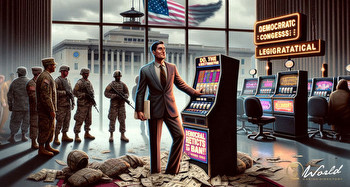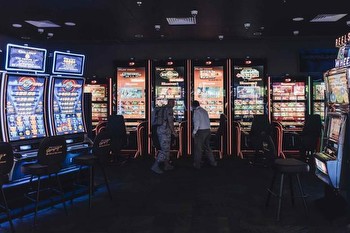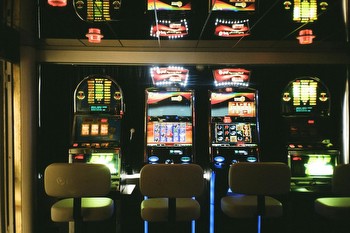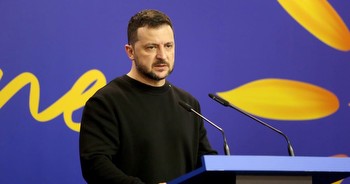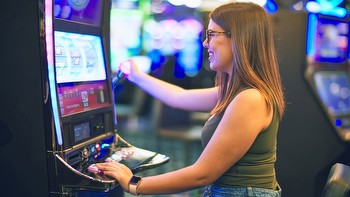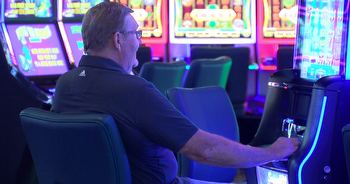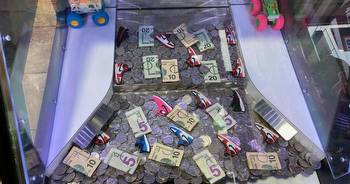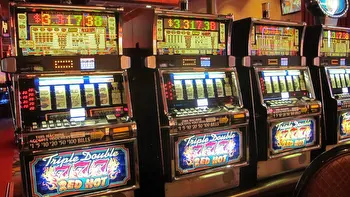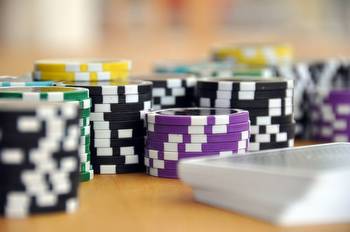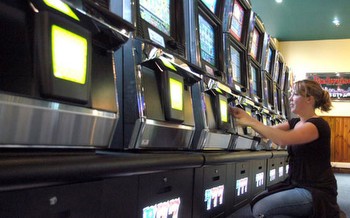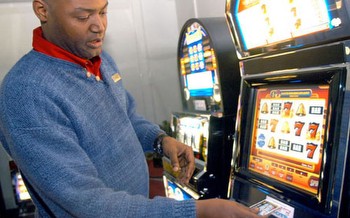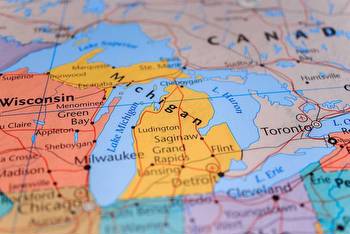Navy MWR introduces ‘coinless’ slots at some base casinos
YOKOSUKA NAVAL BASE, Japan — Heather Hemming works two slot machines at once, her tapping fingers spinning the wheels of fortune at Yokosuka Naval Base’s Seaside Restaurant.
If she “hits,” a heavy rain of quarters will fall. Good news, but it can interrupt a good gambling groove, she said.
“With coin machines, you have to stand and wait for all of the quarters to finish falling. Then you have to carry them over to a cashier and wait for them to be counted,” Hemming said. “Coinless machines are much less waiting and less work.”
Coinless machines — popular in stateside gambling meccas such as Atlantic City, N.J., and Las Vegas — track wins and losses on magnetic cards cashed out by a cashier or an automated teller machine. You pay money for a card, like depositing money to fund a debit card, and it quits when you run into the red. Casino cards let you choose the denomination — whatever machine you’re on — and in some cases, pick the game you want to play.
Now several casinos on overseas U.S. Navy bases are going “coinless,” say Morale, Welfare and Recreation officials, in hopes of fattening MWR budgets. Naval Air Facility Atsugi went “coinless” last week as a test; MWR there spent some $280,000 on 28 new slots that let players bet pennies, nickels or quarters on whichever machine they choose.
“We’re going to put our machines on par with Atlantic City, Reno and Las Vegas,” said Steve Motchnik, Atsugi MWR director.
The new slots likely will pay cost-cutting dividends. “The machines won’t ever be ‘down’ after a payout because they’ll never need refilling,” Motchnik said. “They’re always ready to go.”
It’s a “win-win situation,” he said, because the $1 million to $1.2 million in annual profits the Atsugi machines generate help fund on-base MWR programs. Unlike other services, which send portions of winnings to MWR stateside, the Navy recycles all gambling revenues into individual overseas bases for programs and new construction, he said.
Yokosuka Naval Base, which makes about $10 million in gambling revenue, will open a newly renovated coinless casino in the Seaside Restaurant this summer.
But Kadena Air Base, Okinawa, is getting out of the gambling business by subcontracting the casinos to the Army and splitting the profits. The Army runs the slots for both the Marine Corps and Naval Forces Korea.
Both methods are being tried, said Chief Petty Officer Maria Yager, Commander Naval Forces Japan spokeswoman: “We’re looking at cost-effectiveness. Commander Naval Installation Japan will look at the data a year from now and compare,” she said.
Neither Yager nor Motchnik expressed worry the new slots would encourage problem gambling. “Hopefully, people are doing it for enjoyment — like a video game,” Motchnik said. “They’re not planning to buy summer homes with the winnings.”
Yager referred to a 2001 congressional report, “The Effect of the Ready Availability of Slot Machines on Members of the Armed Forces, Their Dependents and Others.” The report outlined how slot machines in MWR facilities overseas have no negative effect on the morale or financial stability of U.S. forces, their family members or civilian employees.
“It’s like this,” Yager said. “We don’t want people to drink and drive, but we still sell alcohol at the commissary.”
Base chaplains and Fleet and Family Services provide support for those with problems, she added.
Dependent Gwen Sheppard sees little difference in the new coinless slots. She first tried them Tuesday in Atsugi.
Said Sheppard: “They all take money.”








